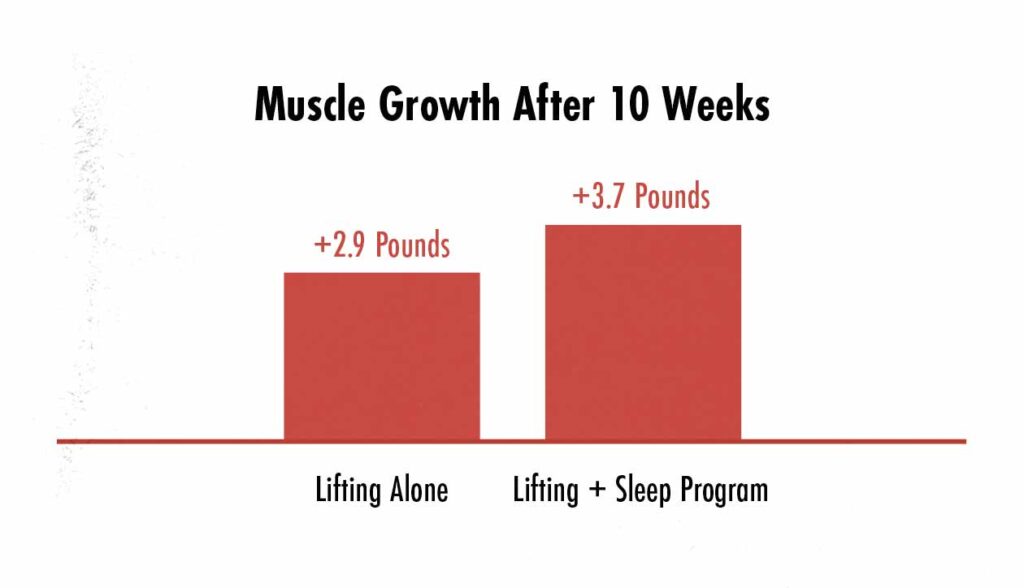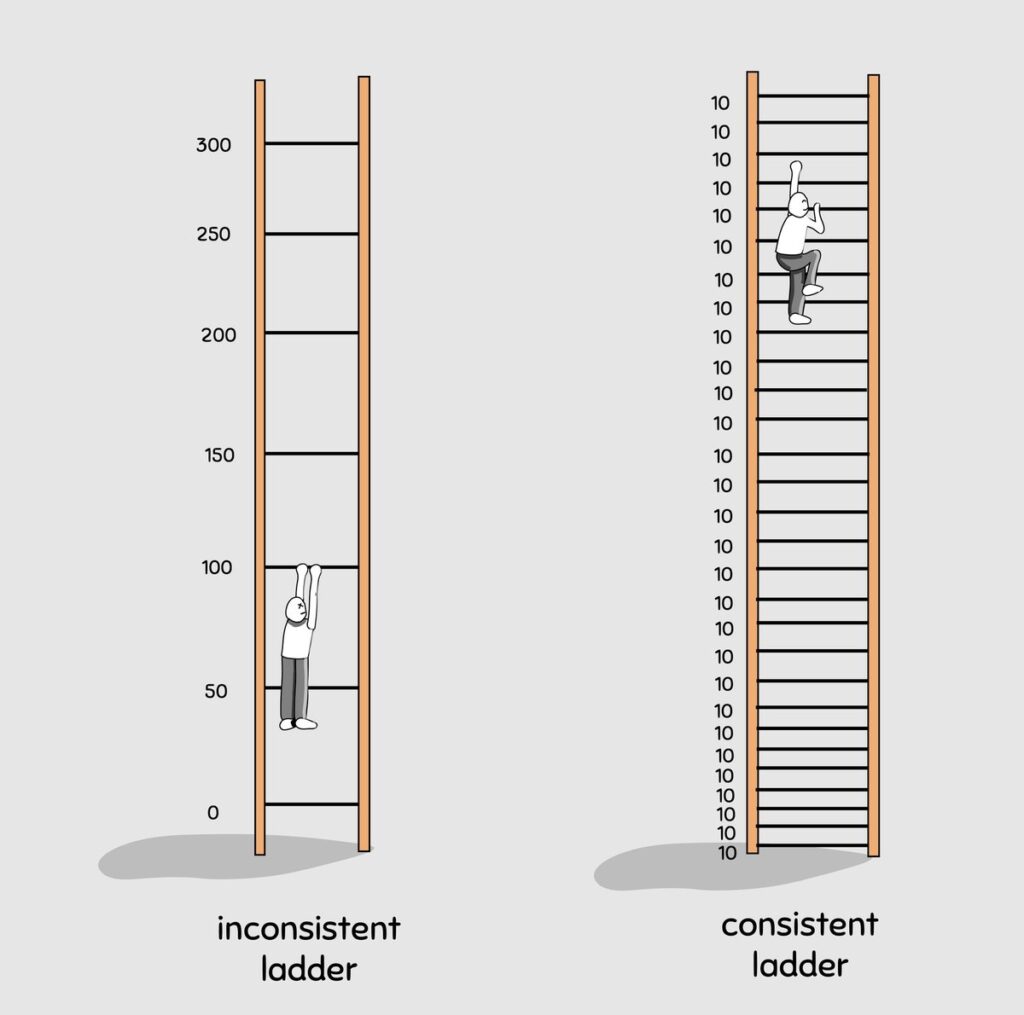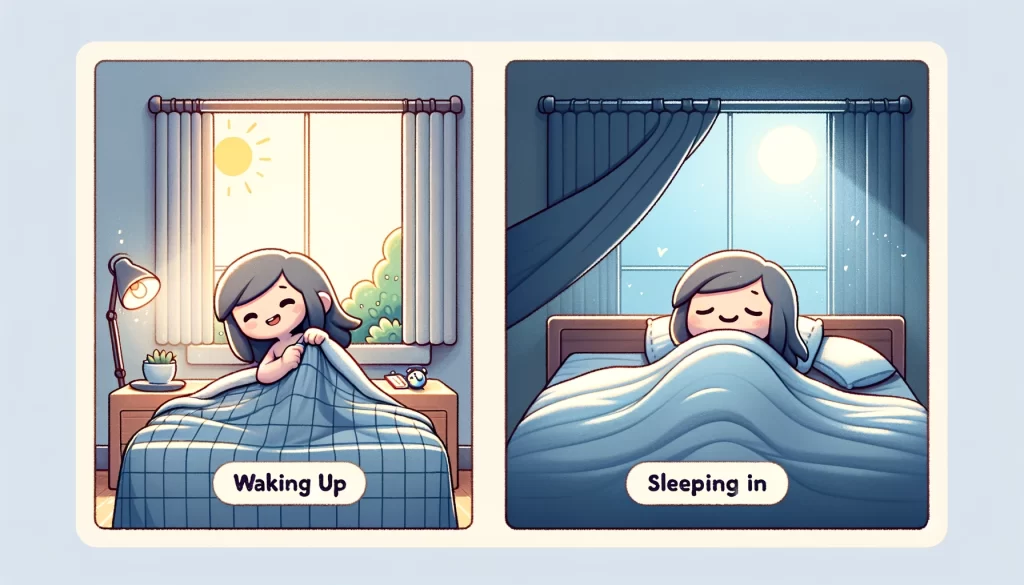Why The 5 AM Club Isn't For You - "You Can't Handle The Truth!"
You’ve probably seen entrepreneurs and influencers yapping about how they wake up at 5 in the morning and start their “grind” so they can “win the day”. Well, there’s a downside to this that most people don’t realize.
These influencers say that we should wake up early based off of the logic that we’ll be able to gain “more time” by doing so, but like most things, the usage of time on something means not being able to allocate time for another, hence the economic term opportunity cost.
Contrary to popular belief, you don’t simply get more time just by waking up early. In order to wake up earlier, you either have to sleep earlier or sacrifice your sleep.
Many people get the wrong notion that sacrificing sleep helps create more time, but the reality is: lack of sleep fatigues the body and mind, resulting in a less productive day
Generally, teenagers need 8-10 hours of sleep, while adults need 7-9 hours each night. Sleeping less gives the brain less time to recover, leading to impaired cognitive functions such as memory, decision making, and mental health.
Sleep also harms physical health, so if you workout or play sports like me, you might not get sufficient muscle recovery and won’t see those “gains”.


Expectation vs. Reality
Let’s say Tom, a motivated teenager, listened to some clips and decided he’s going to wake up early so he can have more time to “get on the grind”.
He goes to sleep at 12 as usual, but starts waking up at 5 instead of 8.
1. He spends his first “Extra Hour” working out, only to put in a half-assed workout due to low energy levels. (he’s not going to properly recover either if he only sleeps 5 hours)
2. After this practically useless workout, he starts reading, but the lack of sleep inhibits his retention, and instead of understanding, he’s just reading the words off the page.
3. Tom then works on the project, and once again he doesn’t do it to the best of his abilities and makes a few careless mistakes he could’ve otherwise avoided if he was more energized.
4. Finally, Tom goes to school, but retains 20% less information than he usually does because he’s constantly tired and sleepy in class.
In plain sight, Tom was successful in his endeavors. He got more done with the extra time, but what he didn’t realize was that the activities he did either didn’t help him or even harmed him.
His workouts were futile, his reading was a waste of time, the project he worked on had mistakes, and his learning abilities plummeted at school. On top of all that, all that sleep debt will eventually catch up on him and wear him out.
Yes, I acted exactly like Tom a few years back, and it soon became evident to me that sacrificing sleep for additional waking hours was a misguided approach.
THIS is why I urge you to not make the same mistake I did.
Instead, look for alternative ways to be harness productivity in the limited waking hours(I’ll share some on secrets in later posts).
Expectations:
- Workout to grow muscles
- Read books to gain knowledge
- Finish school project
- Go through the day normally
- More time created
Reality:
- Inefficient workout that contributed to minimal muscle growth
- Poor retention and no knowledge gained
- Finished project with many mistakes leading to a lower grade
- Unable to focus at school and feels tired throughout the day
- Decreased productivity in waking hours
What's All the Hype?
While sacrificing sleep isn’t the best idea, waking up early isn’t without its benefits, else doing so wouldn’t be such a common habit employed by successful people.
Similar to the negative impacts of Tom sleeping less, the effects of waking up early can’t be immediately observed, but it does make a difference in the long run.
These ultra-successful people all wake up for one reason and one reason only: to prepare themselves for the day that is to come.
The act of waking up a little earlier gives us sufficient time to complete a morning routine instead of having to rush out the door as soon as that alarm sounds.
Now that we’re on the topic of morning routines, the next question you have is: why do I need a morning routine. And oh boy do I have a list of benefits for you!
Consistency and Exponential Growth
One of the sole purposes of having a routine is to practice having a consistent lifestyle in a world where everything is changing all so quickly. Consistency is the one guaranteed way of achieving a successful life.
“It’s not what we do once in a while that shapes our lives. It’s what we do consistently.” – Tony Robbins.
Let’s say you were to read just 10 pages of a book a day, a seemly simple task. Within a month, you’ll be able to finish the average book(maybe don’t read Crime and Punishment) by simply committing 10-15 minutes a day to reading.
If you consistently go to the gym every single day without changing your diet, you will easily lose 4.5lbs of weight in a month.
Waking up early every single day is a practice of consistency, a dedication to growth. The possibilities of waking up just 10 minutes early truly amazing what could be accomplished just by staying consistent and pushing through, even when you don’t feel like it.

Discipline
Discipline and Consistency are similar concepts – Discipline is doing something even when you don’t feel like doing it. Consistency is doing something constantly over the duration of a period.
Consistency comes from discipline, as there will always be days where you don’t feel like doing something. However, if you’re disciplined enough, you’ll do it nonetheless and therefore stay consistent in your endeavors.
Waking up early is one of the best ways to build discipline. Allow me to explain. Most people wake up in the morning because they have somewhere to be: usually school or work. The reason why people sleep in on weekends is because they have no obligations and no reason to wake up.
In other words, most of us are forced to wake up in the morning. However, when we wake up a little earlier without being forced by an external source, we slowly develop our self-discipline.
We then understand that waking up is a necessity and must be done without being forced to do so. Even if we wake up just 10 minutes earlier than we need to, we would be fighting our laziness and building self-discipline, which then reinforces consistency and helps lead a successful life.

Carpe Diem - Seize the Day
Every day is an opportunity to work, to learn, to grow. Some days you wake up and you feel great, some days you feel like shit. Waking up early and getting a few simple tasks done can drastically boost one’s mood and help build up momentum for the day.
Getting up just 10 or 20 minutes earlier than usual is more than enough time to get a few simple tasks done.
“If you want to change the world, start off by making your bed.” Admiral William H. McRaven said in one of the greatest speeches ever. It means that the smallest things that seem of utmost insignificance lay the foundation of a person’s character and mindset.
By getting the simplest of things done in the morning, such as making the bed, reading a few pages in a book, or even getting a quick 5 minute workout in, can fool the mind into thinking that you’re very productive today, and that it would be wise to carry that momentum forward.
When we already feel accomplished for the day, each task ahead would feel less daunting and easier to tackle, in turn helping you win the day.

Time to Take Action!
You might be wondering, so do I wake up early or not?
Sacrificing sleep still isn’t a viable option, but with all the benefits of waking up early, who could resist.
The good news is there’s no need to join the 5 AM club, but rather waking up 15 minutes before you usually do is enough to make drastic changes to your life.
Step 1: Create a morning routine – it doesn’t have to be perfect, it just has to be something. Make sure you complete three tasks in this routine in order to start off the day with good momentum. For example, you could do a 5 minute workout to get the blood pumping, make your bed, or read a few pages.
Step 2: Set your alarm to 5 minutes before you usually wake up, and wake up 5 minutes earlier than you usually do for the first week. During the second week, wake up 10 minutes earlier, and then 15 minutes earlier for the third week. By making small changes, you’ll barely feel the difference, but you’ll be making one of the biggest changes in your life.
Step 3: For the first week of step 2, complete one of the tasks you created in step 1. During the second week, complete two tasks, then all three tasks on the third week.
THAT’S ALL! Now you can safely call yourself a “Morning Person”.
Extraordinary 😍
I have been browsing online more than 4 hours today, yet I never found any interesting article like
yours. It’s pretty worth enough for me. In my opinion, if all webmasters and bloggers made good content as you did, the web will be a lot more useful than ever before.
Appreciate the kind words! I’ll do my best to consistently create content as such to help everyone achieve a better version of themselves.
Great stuff